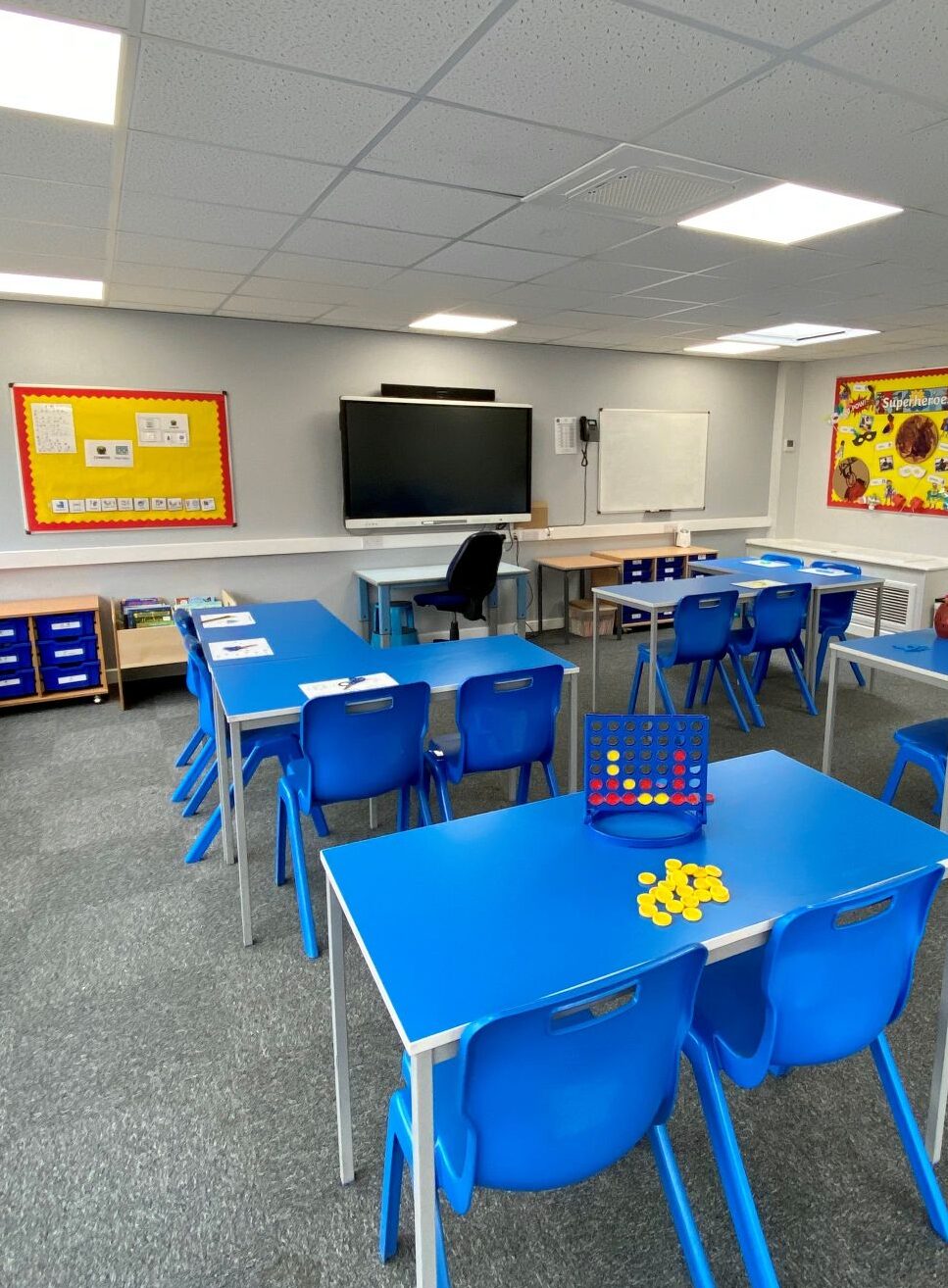KEY
GOOD HEALTH
FRIENDS, RELATIONSHIPS & COMMUNITY
Content marked ** in Italic is Sex Education Content
B0 – B7
Encountered
B8 – B14
Engaged
B15 – B21
Developing
B22+
Independent
Families and people who care for me: that others’ families, either in school or in the wider world, sometimes look different from their family, but that they should respect those differences and know that other children’s families are also characterised by love and care.
Offer opportunities for pupils to learn to recognise their family, through photos of them with their family, and staff interactions with family – “it’s MUMMY!”.
Communication aids showing family at home and friends/staff at school.
Offer opportunities for pupils to learn to recognise their family, through photos of them with their family, and staff interactions with family – “it’s MUMMY!”.
Communication aids showing family at home and friends/staff at school.
Plan family themed role play and small world play.
Provide access to a variety of books that show different family dynamics.
Plan narrative, call and response and sensory story sessions based on families and carers.
Use role play opportunities like dolls and baby related toys to develop understanding of caring for others and home corners to role play familiar home occurrences. Staff model appropriate interactions.
Provide access to family photos in the classroom.
Plan family themed role play and small world play.
Provide access to a variety of books that show different family dynamics.
Plan narrative, call and response and sensory story sessions based on families and carers.
Plan group discussions around the weekends and holidays when pupils see extended family.
Plan group activities like ‘build your own family’ where pupils have access to a bank of people, young and old, and they have to make their own family and explain who each member is.
Plan varied offsite activities and community visits.
Provide opportunities for diary entries from home.
Write letters to family members.
Read and provide access to books with different family dynamics – have group discussions around these.
Share family photos – play games like guess the baby photo.
Discuss characteristics of family members.
.
Caring friendships: the characteristics of friendships, including mutual respect, truthfulness, trustworthiness, loyalty, kindness, generosity, trust, sharing interests and experiences and support with problems and difficulties.
Staff to model positive interactions and set clear boundaries for socially inappropriate behvaiours that are shown.
Staff use simple language to acknowledge peers of pupils and restoring conflicts i.e. that’s Jack’s book, lets give it back.
Staff to be person of trust and show kindness and support through problems and difficulties
Staff to highlight when kindness is shown and verbalise this, using terms like ‘friends’ and ‘good sharing’.
Staff to model positive interactions and set clear boundaries for socially inappropriate behvaiours that are shown.
Staff use simple language to acknowledge peers of pupils and restoring conflicts i.e. that’s Jack’s book, lets give it back.
Staff to be person of trust and show kindness and support through problems and difficulties.
Provide opportunities for different levels of play alongside varied pupils and highlight shared interests that arise
Plan narrative, call and response, sensory stories and Pelican sessions around friendships
Provide varied opportunities for social intertactions in the classroom, outside and offsite.
Encourage pupils to highlights similarities and differences between each other.
Staff to encourage pupils to work together through problems and difficulties during play, forest school, outdoor learning etc.
Provide opportunities for different levels of play alongside varied pupils and highlight shared interests that arise
Plan narrative, call and response, sensory stories and Pelican sessions around friendships
Provide varied opportunities for social intertactions in the classroom, outside and offsite.
Encourage pupils to highlights similarities and differences between each other.
Staff to encourage pupils to work together through problems and difficulties during play, forest school, outdoor learning etc.
Provide opportunities for different levels of play alongside varied pupils and highlight shared interests that arise
Plan narrative, call and response, sensory stories and Pelican sessions around friendships
Provide varied opportunities for social intertactions in the classroom, outside and offsite.
Encourage pupils to highlights similarities and differences between each other.
.
Science: notice that animals, including humans, have offspring which grow into adults (baby, toddler, child, teenager, adult). • find out about and describe the basic needs of animals, including humans, for survival (water, food and air) • describe the importance for humans of exercise, eating the right amounts of different types of food, and hygiene.
Use mirrors to explore reflections and recognise themselves.
Provide photos or videos of familiar people of different ages (siblings, parents, grandparents).
Visit petting farms to see animals and offspring.
Provide access to communication aids.
Visit petting farms to see animals and offspring.
Show videos and pictures of younger self and talk about changes.
Provide pictures of familiar adults as a baby, child teenager and adult.
Talk about what humans and animals need to survive use Teddy and themselves as examples, (food, water, air, shelter, exercise, sleep and hygiene).
Go on a hunt and see if they can find animal and insects outside.
Visit petting farms to see and name animals and offspring. Look at what they need to survive.
Explore unhealthy / healthy food and amounts such as too much chocolate, not moving your body or bad hygiene, drinking and smoking- if appropriate.
Show videos and pictures of younger self and talk about similarities and differences.
Provide pictures of familiar adults as a baby, child teenager and adult.
Talk about what humans and animals need to survive use Teddy and themselves as examples, (food, water, air, shelter, exercise, sleep and hygiene).
Go on a hunt and see if they can find animal and insects outside. Make an animal or insect shelter.
Visit petting farms to see and name animals and offspring. Look at what they need to survive.
Explore food groups, unhealthy / healthy food and amounts.
Show videos and pictures of younger self and talk about similarities and differences.
Provide pictures of familiar adults as a baby, child teenager and adult. Can they name the stages and changes?
Talk about what humans and animals need to survive use Teddy and themselves as examples, (food, water, air, shelter, exercise, sleep and hygiene).
Go on a hunt and see if they can find animal and insects outside. Make an animal or insect shelter.
Respectful relationships: the importance of self-respect and how this links to their own happiness.
Staff to model positive interactions and set clear boundaries for socially inappropriate behaviours that are shown.
Regular access to intensive interaction and motivators.
Expose pupils to potential new motivators and experiences that promote a joy in living and expand preferences.
Staff to be person of trust and show kindness and support through problems and difficulties
Staff to highlight when kindness is shown and verbalise this, using terms like ‘friends’ and ‘good sharing’.
Use Pelican to explore themselves, their preferences, and how they like to be treated.
Expose pupils to potential new motivators and experiences that promote a joy in living and expand preferences.
Staff to model kindness to self and to talk positively about themselves and others.
Explore ways we can respect ourselves – mind (rest, access to things we enjoy, time with friends/loved ones) and body (exercise, plenty of sleep, healthy, balanced diet, self care)
Use Pelican to explore themselves, their preferences, and how they like to be treated.
Discuss how we talk respectfully to others and how we should treat ourselves with the same respect. Model this consistently.
Provide opportunities to explore what makes them happy and the importance of exposing ourselves to these things.
Explore ways we can respect ourselves.
Use Pelican to explore themselves, their preferences, and how they like to be treated.
Discuss how we talk respectfully to others and how we should treat ourselves with the same respect.
Provide opportunities to explore what makes them happy and the importance of exposing ourselves to these things.
Explore ways we can respect ourselves.
Online relationships: that people sometimes behave differently online, including by pretending to be someone they are not.
Provide access to technology and model safe use
Provide access to technology and model safe use.
Explore ways we communicate online.
Introduce Ivengers program.
Use technology to communicate – explore scenarios where people are pretending to be different online.
Introduce Ivengers program.
Use technology to communicate – explore scenarios where people are pretending to be different online.
Being safe: about the concept of privacy and the implications of it for both children and adults; including that it is not always right to keep secrets if they relate to being safe. That each person’s body belongs to them, and the differences between appropriate and inappropriate or unsafe physical, and other, contact.
Encourage consent by asking and talking through physical contact and intimate/personal care. Support pupils to maintain their dignity by encouraging them to cover private areas in public spaces.
Facilitate the learning of consent through maximising pupil voice and their opportunities to make choices throughout their timetable.
Staff to model appropriate interactions and highlight unsafe/inappropriate behavious.
Use visual aids to support.
Use language around privacy consistently – “_____ is private”, “door closed in toilet, toilet is private”.
** Directed pupils to withdraw from touching genitalia for stimulation at school- noting that as puberty hits this will be an increasing desire for some and will likely impact behaviour (see RSHE policy for guidance). **
Use photos of bedroom, bathroom (personal to pupil) alongside communication symbols to show public and private spaces.
Ask for consent and talk openly through times of physical contact – ie personal/intimate care.
Encourage pupils to make choices/say no when they are uncomfortable.
** Discuss which areas of the body are private and when can we be naked or who can help/ show our privates to. Model public and private places using dolls. Have a picture of pupil’s own bedroom and bathroom at home.
Facilitate the learning of consent through maximising pupil voice and their opportunities to make choices throughout their timetable.
Encourage pupils to ask for consent when touching others.
Begin using dolls and strories to explore areas of appropriate and inappropriate touch.
Highlight in the moment when touch is innappropriate or unsafe. Use visual aids to support.
Use photos of bedroom, bathroom (personal to pupil) alongside communication symbols to show public and private spaces.
Plan role play, drama and narrative sessions around privacy, consent and boundaries.
Practice saying ‘no’ in a variety of scenarios – explore how certain scenarios might make them feel.
** Discuss which areas of the body are private and when can we be naked or who can help/ show our privates to. Model public and private places, using a sorting activity to learn what places are public and private and where we can get changed or be naked. Have a picture of pupil’s own bedroom and bathroom at home (private places). Pantosaurus NSPCC resources are useful – pants cover up your private parts.
Use RSHE stories and props to show private areas and spaces.
Encourage pupils to ask for consent when touching others.
Begin using dolls and stories to explore areas of appropriate and inappropriate touch.
Highlight in the moment when touch is inappropriate or unsafe. Use visual aids to support.
Plan role play, drama and narrative sessions around privacy, consent and boundaries.
Practice saying ‘no’ in a variety of scenarios – explore how certain scenarios might make them feel.
** Ensure pupils know where their private parts are, who can see them or help, what public and private parts are and where you can be naked. Pantosaurus NSPCC resources are useful – pants cover up your private parts.
Use RSHE stories and props to show private areas and spaces.
Encourage pupils to ask for consent when touching others.
Begin using dolls and strories to explore areas of appropriate and inappropriate touch.
Highlight in the moment when touch is innappropriate or unsafe. Use visual aids to support.
Use photos of bedroom, bathroom (personal to pupil) alongside communication symbols to show public and private spaces.
Mental wellbeing: how to judge whether what they are feeling and how they are behaving is appropriate and proportionate. • the benefits of physical exercise, time outdoors, community participation, voluntary and service-based activity on mental wellbeing and happiness.
Offer regulation techniques when pupils begin to feel dysregulated and overwhelmed.
Provide opportunities to explore physical activities such as sensory swimming/ water play, dance, outdoor spaces and equipment (throw, balance, climb, spin, swing, tilt, squeeze) to develop preferences.
Allow pupils to explore music, sensory cooking and mark making with different resources.
Encourage pupils to identify and express their emotions.
Provide opportunities to explore a range of physical activities to develop preferences such as swimming/ water play, dance, outdoor spaces and equipment (throw, balance, climb, spin, swing, tilt, squeeze) .
Allow pupils to explore music, cooking, mark making with different resources and communicate trips.
Encourage pupils to identify and express a wider range of emotions.
Staff to support pupils to reflect upon events to explore the appropriate and proportionate response.
Provide opportunities to explore a range of physical activities to develop preferences and impact of how the activity makes them feel such as swimming/ water play, dance, outdoor spaces and equipment (throw, balance, climb, spin, swing, tilt, squeeze) .
Pupils will identify and express a wide range of emotions and use regulation techniques.
Discuss extreme emotions and that we might need help to deal with them at times such as triggers, events or continuously feeling an emotion.
Allow opportunities to explore a range of physical activities, community experiences and expressive arts to show a variety of hobbies that are available to them.
Internet safety and harms: how to consider the effect of their online actions on others and know how to recognise and display respectful behaviour online and the importance of keeping personal information private.
Provide access to technology and model safe use.
Set limits where possible and ensure iPad content is restricted – report when unsafe material is access. Ensure familiar adults are regularly checking and interacting with pupils whilst using technology.
Introduce different apps and invitations to explore various devices. Use communication aids to support requests and express preferences – See Use of Technology tab in Independent living LTP.
Provide access to technology and model safe use.
Use internet as part of daily lessons – model use of internet to get answers, information, images, videos etc.
Set limits where possible, ensure iPad content is restricted. Work with pupils to report when something is wrong.
Introduce different apps and invitations to explore various devices. Use communication aids to support requests and express preferences. – See Use of Technology tab in Independent living LTP.
Plan role play, drama and stories around online behaviours.
Use iVengers Special Agents to provide peer led sessions on internet safety and harms – see computing SoW.
Use technology to gather information, fill in forms etc and discuss what personal information in, and when it is appropriate to share.
Use Safety RSHE resources and props to explore dangers of sharing personal information.
Begin using technology to communicate with eachother and family.
Plan role play, drama and stories around online behaviours.
Use technology to gather information, fill in forms etc and discuss what personal information in, and when it is appropriate to share.
Use iVengers Special Agents to provide peer led sessions on internet safety and harms – see computing SoW. Invite those who are particularly susceptable to online risk to be an Special Agent to intensify their online safety learning.
Use Safety RSHE resources and props to explore dangers of sharing personal information.
Show examples of mild disrespectful language online and get pupils to highlight appropriate and inappropriate online behaviour.
Begin using technology to communicate with eachother and family.
Physical health and fitness: the characteristics and mental and physical benefits of an active lifestyle.
Explore a range of motivators with the pupil to identify preferred ones.
Staff to model and support pupils to explore different relaxation techniques and offer preferred ones to pupils when becoming dysregulated.
Provide opportunities to explore physical activities such as sensory swimming/ water play, dance, outdoor spaces and equipment (throw, balance, climb, spin, swing, tilt, squeeze) to develop preferences.
Provide opportunities to explore a range of physical activities to develop preferences such as swimming/ water play, dance, outdoor spaces and equipment (throw, balance, climb, spin, swing, tilt, squeeze) .
Explore how different activities make them feel. Ensure communication aids are in place to support with this.
Provide opportunities to explore a range of physical activities to develop preferences and impact of how the activity makes them feel such as swimming/ water play, dance, outdoor spaces and equipment (throw, balance, climb, spin, swing, tilt, squeeze).
Explore how different activities make them feel and discuss what the benefits of exercise are for the mind and body. Ensure communication aids are in place to support with this.
Allow opportunities to explore a range of physical activities to show a variety of hobbies that are available to them.
Discuss the importance, benefits and the amount of physical activity that is recommended to stay healthy.



